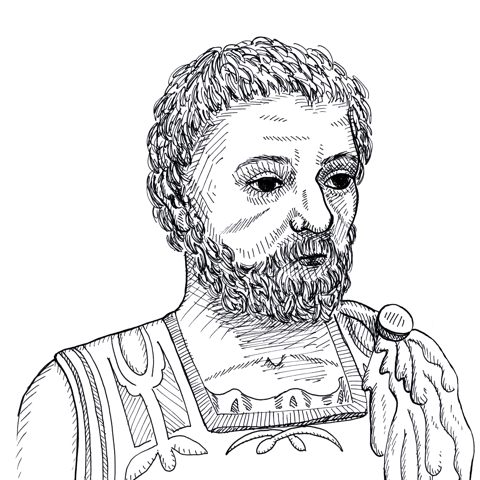
Marcus Aurelius on using reason to live one’s life “straight and right” (170)
Found in: The Meditations of the Emperor Marcus Aurelius Antoninus (2008)
The Emperor Marcus Aurelius Antoninus (121-180) was also a Stoic philosopher whose Meditations (written while on a military campaign during the 170s) were highly influential during the Scottish Enlightenment. He exhorted each person to find peace within themselves by discovering the natural laws which governed the universe and living one’s life in accordance with them. His advice was to live one’s life “always straight and right, and not as amended or rectified” by others:
Philosophy
- Do nothing with reluctance, or forgetting the kind social bond, or without full inquiry, or hurried into it by any passion. Seek not to set off your thoughts with studied elegance. Be neither a great talker, nor undertaker of many things. And let the God within thee find he rules a man of courage, an aged man, a good citizen, a Roman, who regulates his life, as waiting for the signal to retreat out of it, without reluctance at his dissolution; who needs not for a bond of obedience, either the tie of an oath, or the observation of others. Join also a chearful countenance, an independence on the services of others, a mind which needs not retirement from the world, to obtain tranquillity; but can maintain it without the assistance of others. One should rather appear to have been always straight and right, and not as amended or rectified.